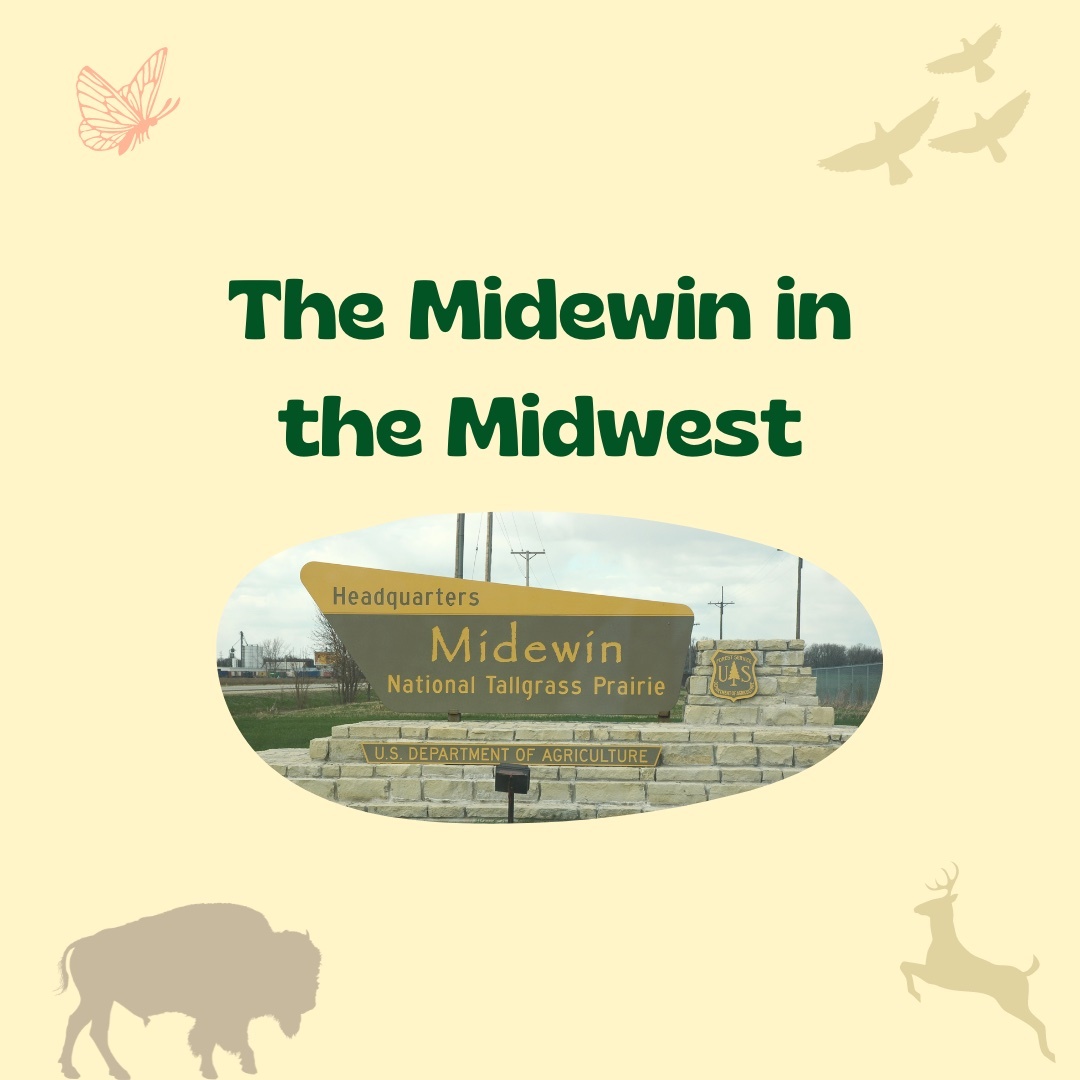By Laura Tran, C2ST Intern, Rush University
Genetic engineering can be used to produce genetically modified organisms (GMOs) like weather-resistant crops, modified yeast or bacteria that produce insulin¹, and even animal organs suitable for human transplantation². GMO crops offer several advantages such as improved yields, enhanced nutritional value, and resistance to drought, frost, or pesky insects. However, making genetically modified food can be time-consuming and costly. Recent technology may be the solution to circumventing these issues.

Continue reading “GMOs without the GM!”
By Summer Seligmann, C2ST Intern, Loyola University
Just outside of Chicago in Wilmington, Illinois, there’s a place called Midewin National Tallgrass Prairie where you can see native wildflowers, grassland birds, and bison (yes, bison). Midewin is the largest protected grassland reserve in the greater Chicago region, and the first ever designated national tallgrass prairie in the United States.. Midewin and other preserves like these are crucial in protecting our wildlife, biodiversity, and to preserve natural spaces for generations to come.
 Continue reading “The Midewin in the Midwest”
Continue reading “The Midewin in the Midwest”
By Laura Tran, C2ST Intern, Rush University
Do you get enough sleep? Chances are the answer is no.
Over one-third¹ of American adults aren’t getting enough shut-eye. Many of us juggle busy schedules, family and friends, and other responsibilities that can stress us out and keep us from getting enough rest.
In 1998, The National Sleep Foundation created a week-long event, called Sleep Awareness Week, to promote better sleep for our overall health and well-being. It begins at the start of daylight saving time (this year on March 13th), a time when many of us lose an hour of sleep as we “spring forward”. Although daylight savings is not ubiquitously observed worldwide, this event is a great reminder for us to get well-deserved rest.
 Continue reading “Sleep Is For The Week (Sleep Awareness Week)”
Continue reading “Sleep Is For The Week (Sleep Awareness Week)”
By Veronica Villanueva, C2ST Intern, Rush University
Valentine’s Day came and went just a few weeks ago. While some people may have found their soulmates, others are still searching for their sweetheart. There are a plethora of ways to find that perfect someone to spend your life with, from dating apps to blind dates to meeting someone out in the world. Dating can be overwhelming. Perhaps love is a game of chance, or maybe we just have to look at romance scientifically.
 Continue reading “In Love, Words Speak Louder Than Actions…At Least At First”
Continue reading “In Love, Words Speak Louder Than Actions…At Least At First”
By Laura Tran, C2ST Intern, Rush University
When we get hurt, our bodies are capable of closing cuts and mending broken bones. We can even use stem cells to regrow parts of our liver¹. But this is basically the extent of our regeneration capabilities. Although our bodies naturally form scar tissue at major injury sites to protect them from blood loss and infection, we generally can’t recover tissue loss or reverse it (in the case of limb loss, as an example). It may be the case that we cannot regrow lost arms or legs due to the complexity of these limbs.
 Continue reading “Getting A Leg Up On Regenerative Medicine With BioDomes”
Continue reading “Getting A Leg Up On Regenerative Medicine With BioDomes”





